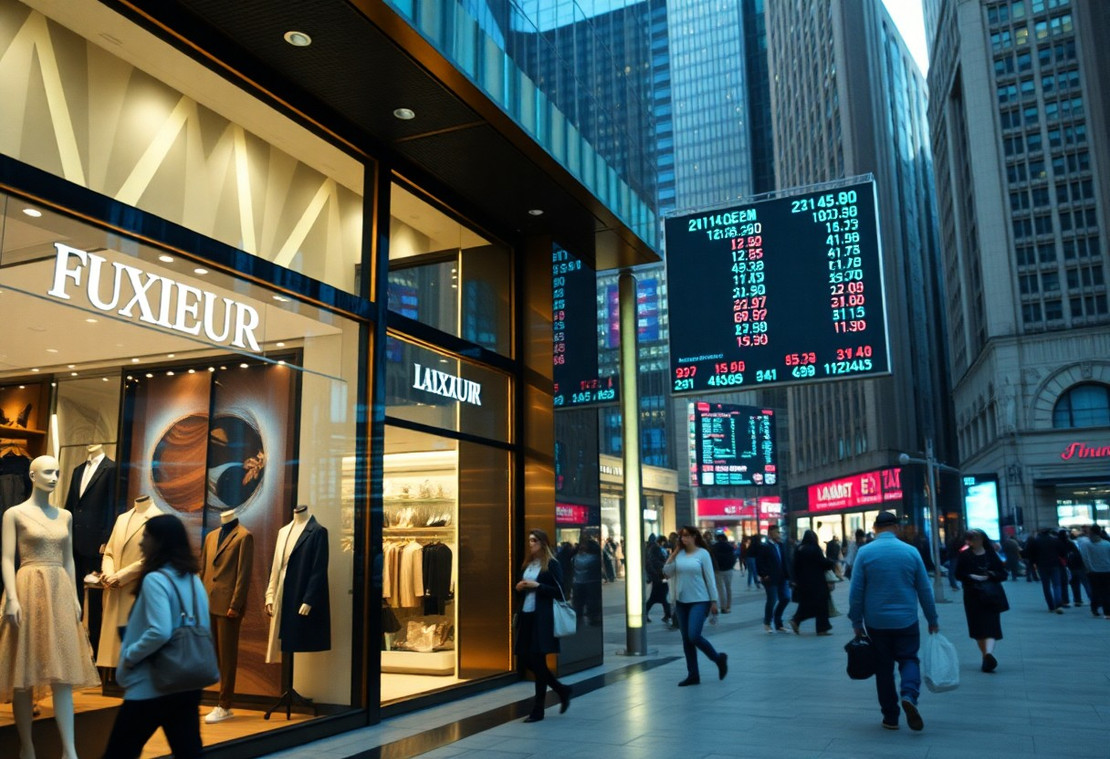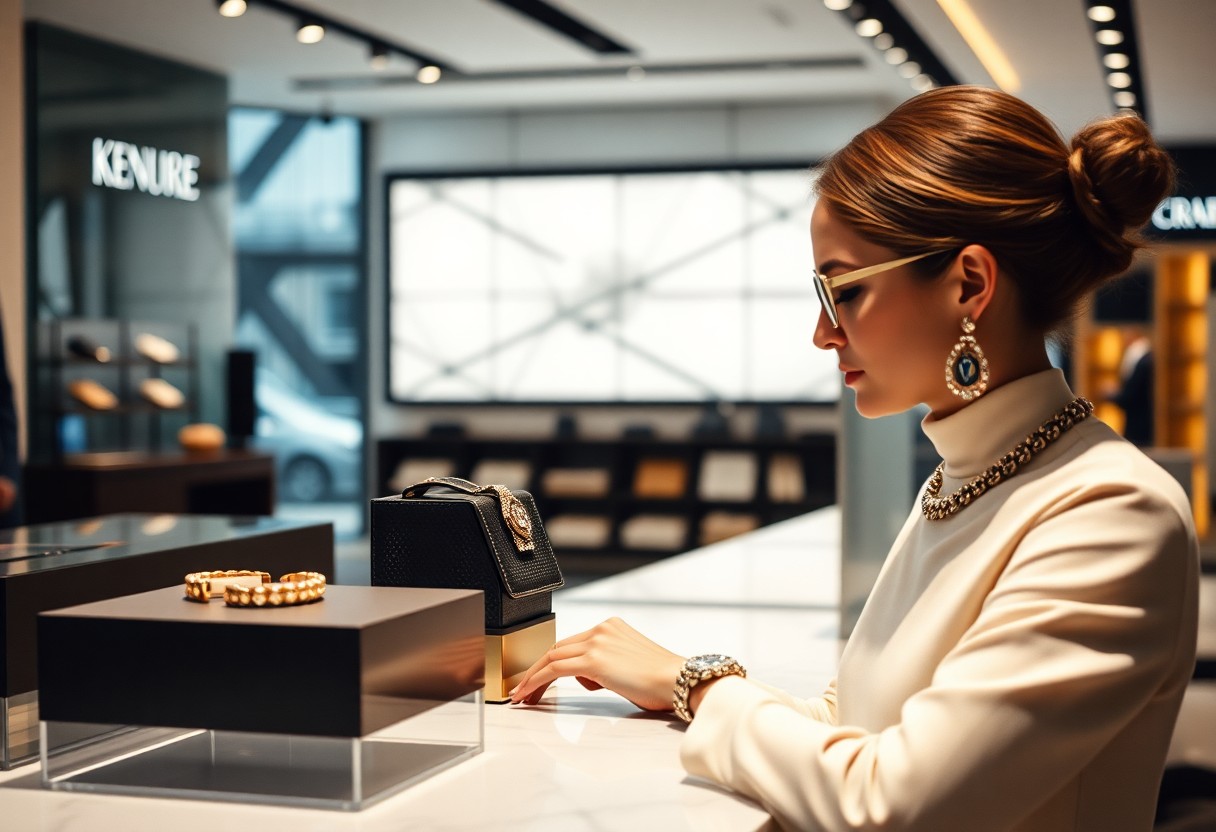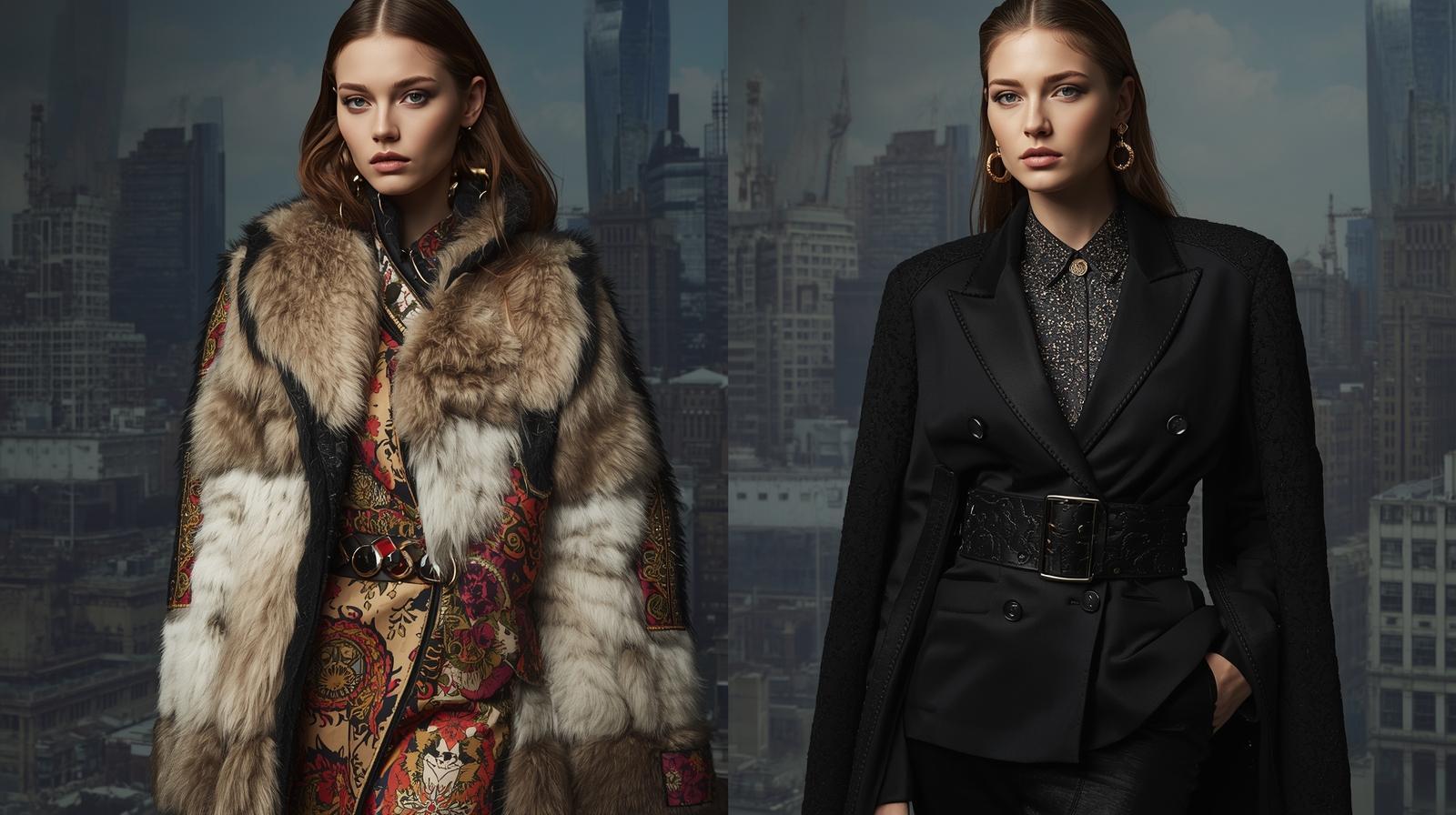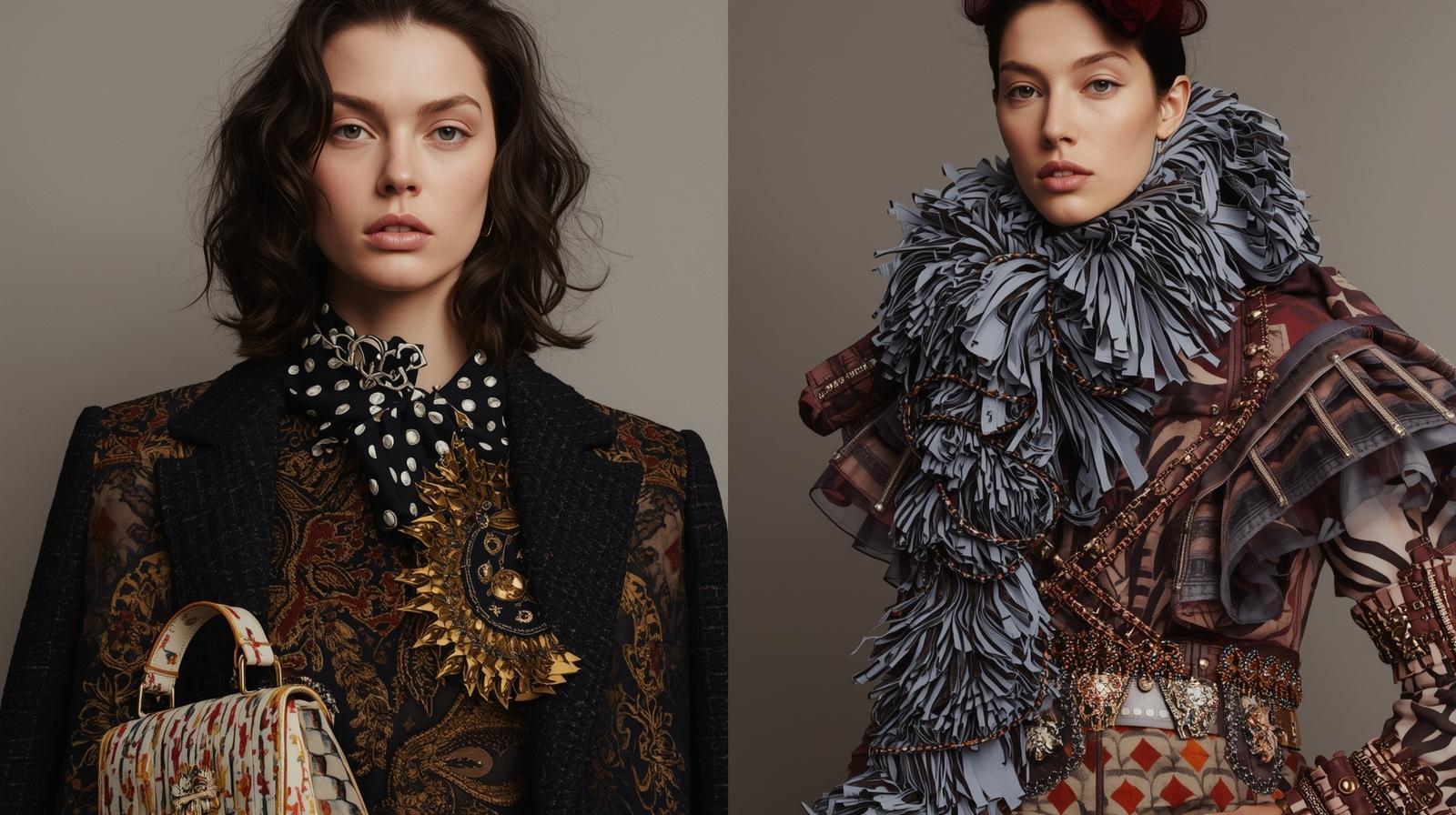21st Nov 2025
Luxury Brands Navigate a Shifting Global Market

You are witnessing how luxury brands are adapting to a rapidly evolving global market influenced by economic fluctuations, shifting consumer preferences, and technological advancements. As a discerning consumer, understanding these changes can help you navigate your purchasing decisions, ensuring you invest in brands that not only reflect your style but also thrive amidst market challenges. Be aware of how these brands are redefining exclusivity and accessibility to maintain their relevance and allure in a competitive landscape.
The Evolving Landscape of Luxury
The luxury sector is in a state of flux, reshaping its strategies to accommodate shifting consumer preferences, technological advancements, and increased global interconnectedness. As affluent consumers seek more personalized experiences, brands are compelled to adapt their offerings, fostering deeper connections through storytelling and authenticity. This transformation manifests not only in product innovation but also in the ways you engage with and experience luxury, from sustainability initiatives to digital enhancements.
Economic Shifts and Consumer Behavior
Economic fluctuations have notably influenced your purchasing decisions within the luxury market. With inflation and changing economic indicators affecting disposable income, brands must remain sensitive to your evolving priorities. Instead of traditional luxury signals, you may increasingly value meaningful experiences and sustainable practices, which demand a shift in how brands present their offerings.
Emerging Markets and Their Influence
Emerging markets are playing an integral role in the expansion of the luxury sector, with countries like China and India leading the way. As your purchasing power increases in these regions, luxury brands must tailor their approach to cater specifically to your preferences, creating a unique blend of tradition and modernity.
China alone is projected to account for approximately 50% of global luxury sales by 2030, prompting brands to enhance local ties and cultural relevance. The rise of affluent consumers in India, with a growing middle class, also indicates that luxury brands need to consider local tastes and customs. As a result, brands are investing in tailored marketing campaigns, enhancing localized product offerings, and leveraging social media to connect with you more effectively. The focus on personal relationship building and community engagement further underscores the shift, ensuring that as markets evolve, your experiences with luxury remain authentic and relevant.
Digital Transformation in Luxury Retail
Your engagement with luxury brands now heavily hinges on their digital transformation. In a competitive landscape, brands leverage cutting-edge technologies to create seamless online experiences, bridging the gap between opulence and accessibility. Enhanced customer data analytics enable targeted marketing and personalization, ensuring that your preferences shape every interaction. This shift not only drives sales but also strengthens brand loyalty in an increasingly digital world.
E-commerce Strategies
As you navigate the luxury e-commerce space, brands are implementing innovative strategies to boost online sales. Personalization tools and AI-driven recommendations enhance your shopping experience, making it more tailored and enjoyable. Many luxury brands are also investing in user-friendly interfaces and secure payment options to streamline your purchase journey, establishing trust and reliability in their digital platforms.
Social Media and Brand Engagement
Engagement on social media platforms has become important for luxury brands to connect with you. Brands are increasingly utilizing Instagram, TikTok, and other channels to showcase their stories, craftsmanship, and exclusive collections. By partnering with influencers and creating immersive content, they not only foster community but also make luxury more relatable and accessible, ensuring your everyday interactions resonate with the brand's ethos.
The impact of social media on luxury brand engagement is profound. For example, brands like Gucci and Dior have mastered storytelling through bespoke content that resonates with your aspirations. You see behind-the-scenes glimpses, interactive polls, and live events that draw you into their world. These brands harness user-generated content, prompting you to share your experiences and creating a vibrant community that celebrates luxury while making you feel part of the narrative. Additionally, targeted ads based on your interactions optimize visibility, ensuring you never miss new launches or limited collections.
Sustainability and Ethical Practices
As you navigate the evolving luxury market, sustainability and ethical practices have emerged as pivotal factors influencing brand loyalty and purchasing decisions. Luxury brands are increasingly committing to eco-friendly materials and ethical sourcing methods, reflecting a shift in consumer values toward conscious consumption. This trend meets regulatory pressures and aligns with your expectations for responsible business practices.
The Rise of Sustainable Luxury
The emergence of sustainable luxury signals a transformative shift in the industry, where brands like Stella McCartney and Gucci are leading the way. Their dedication to sustainable materials and practices presents you with options that don’t compromise on quality or elegance. This movement illustrates that luxury can coexist with environmental stewardship, appealing to your desire for both prestige and responsibility.
Consumer Demands for Transparency
Today, you expect transparency from luxury brands regarding their supply chains and production processes. Consumers are more aware than ever, wanting to know how products are made and the ethics of their purchases. This demand compels brands to reveal the truth about their operations, building trust and ensuring you feel confident in your buying choices.
In increasingly competitive environments, brands that ignore your insistence on transparency risk losing market share. A survey by McKinsey found that 66% of consumers are willing to pay more for sustainable products, highlighting how this demand drives brand loyalty. You are gravitating toward brands that share their stories—whether about sustainable sourcing, fair labor practices, or environmental impact. Companies are now compelled to showcase their commitments, providing detailed reports, certifications, and visibility into their practices to earn your trust and preference.

Collaborations and Brand Extensions
Luxury brands are increasingly leveraging collaborations and brand extensions as strategic tools to attract diverse consumer segments and expand their market reach. By partnering with other luxury labels, artists, or even streetwear brands, these companies manage to create unique offerings that exemplify exclusivity while appealing to younger demographics.
Strategic Partnerships
Through strategic partnerships, luxury brands can tap into new audiences and enhance their brand equity. For example, Gucci's collaboration with The North Face successfully united high fashion with outdoor gear, leading to a sold-out collection that captured the interests of both fashion enthusiasts and adventure seekers.
Limited-Edition Releases
Limited-edition releases have become a hallmark of luxury marketing, generating buzz and urgency among consumers. Brands like Louis Vuitton employ this tactic to create exclusivity, often resulting in immediate sell-outs and elevated resale values.
Limited-edition releases not only drive demand but also establish a sense of urgency and exclusivity that resonates deeply with luxury consumers. Brands often leverage scarcity, with some collections available for only a few weeks or through select retailers, reinforcing the allure of ownership. For instance, Nike and Off-White collaborated to release a limited series of sneakers that garnered immediate attention, quickly sold out, and sparked a thriving resale market that frequently surpasses the original prices by up to 400%. This strategy not only bolsters brand prestige but also transforms consumer behavior, driving both in-store and online traffic.
The Role of Experience in Luxury
In today’s luxury market, the emphasis on immersive experiences has never been more pronounced. Luxury brands are moving beyond mere products to create holistic experiences that resonate with your desires and aspirations. This approach not only strengthens emotional connections but also enhances perceived value, as you seek meaningful interactions with brands.
Personalized Customer Experiences
Personalization is key in the luxury space, as your unique preferences are prioritized. Brands leverage data analytics to tailor offerings and services, crafting customized shopping journeys that cater specifically to your tastes. From bespoke products to personalized notes, every detail reinforces your intimacy with the brand.
Enhancing Brand Loyalty
As luxury brands focus on experience, enhancing brand loyalty becomes paramount. When you feel valued and recognized through tailored interactions, your loyalty to the brand strengthens significantly. This bond is often reflected in repeated purchases and a willingness to advocate for the brand within your social circles.
For instance, brands like Louis Vuitton create exclusive events that not only celebrate their heritage but also allow you to engage with the brand on a deeper level. Loyalty programs have evolved, providing you with unique access to limited-edition items or private sales, thus reinforcing your connection. The impact of these initiatives is clear: you’re more likely to remain loyal to a brand that continuously acknowledges and caters to your individuality.
Challenges and Opportunities
As luxury brands face a volatile global market, they encounter a mix of challenges and opportunities that require swift adaptation. Changes in consumer behavior, economic fluctuations, and geopolitical uncertainties necessitate innovative strategies that not only address current issues but also capitalize on emerging trends. Your ability to navigate this landscape hinges on your understanding of these dynamics, which can either make or break your brand's market standing.
Adapting to Market Changes
Being responsive to market changes is vital for luxury brands today. You must harness real-time data analytics and customer insights to tailor your offerings, ensuring they resonate with the evolving preferences of affluent consumers. For instance, brands like Gucci and Louis Vuitton have successfully shifted toward sustainability, aligning their practices with the values of eco-conscious shoppers.

Navigating Supply Chain Issues
Supply chain disruptions have posed significant hurdles for luxury brands, impacting product availability and delivery timelines. You face challenges such as increased costs, delays, and sourcing difficulties that threaten brand reputation and customer satisfaction.
Focusing on building more resilient supply chains is vital. Many luxury brands are redefining their supplier relationships, opting for closer partnerships with manufacturers and diversifying their sourcing options. For example, Prada has invested in local artisans to reduce dependency on global suppliers, while brands like Chanel have expanded their inventory systems to enhance responsiveness. You must prioritize transparency in sourcing, ensuring that consumers are aware of your commitment to quality and sustainability, even in uncertain times.
Final Words
Summing up, as you navigate the complexities of a shifting global market, understanding consumer preferences and regional dynamics is vital for luxury brands. You must adapt your strategies to align with emerging trends while maintaining your brand's heritage and exclusivity. By leveraging digital innovations and sustainability practices, you can effectively engage a diverse customer base and ensure your brand remains relevant in this evolving landscape.

